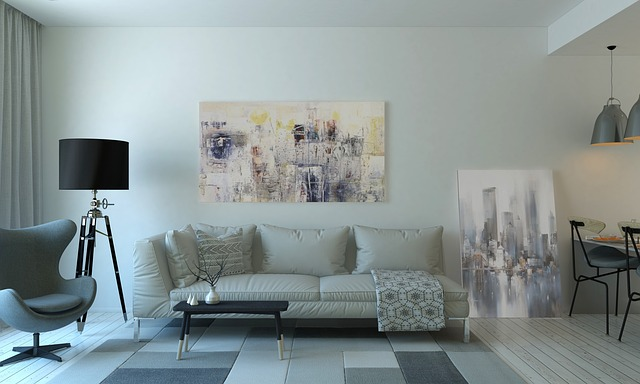Renting My Apartment on Airbnb: A 2024 Guide for Short-Term Rental Hosts

Are you considering renting your apartment on Airbnb to earn extra income, but don’t know where to start?
Airbnb, since its inception in 2007 when initial hosts Brian Chesky and Joe Gebbia welcomed three guests to their San Francisco home, has revolutionized the sharing economy.
Now in 2024, Airbnb boasts over 5 million hosts and has facilitated over 1.5 billion guest arrivals worldwide. This growth mirrors significant changes in the sharing economy, emphasizing trust, personalized experiences, and regulatory adaptations.
Renting an apartment on Airbnb today means navigating a complex market with higher guest expectations and stricter local laws and regulations.
However, it also presents opportunities to leverage Airbnb’s robust platform and global community to create unique, memorable stays, tapping into the evolving traveler preferences for authentic and diverse lodging experiences.

Is Renting My Apartment on Airbnb Worth it?
The U.S. Short-term rental market generated $64-billion in revenue in 2023, with the competitive market being driven by traveler preferences for unique experiences.
Airbnb, operating in over 220 countries, offers a flexible and profitable way to generate income or extra cash for hosts worldwide.
Why Rent My Apartment on Airbnb?
The average income for rent for Airbnb hosts in the U.S. varies significantly based on location, type of rent, property, and occupancy rates. According to data from Airbnb, the typical host in an Airbnb-friendly apartment earned about $3,650 annually by renting out their space for 28 nights in 2023.
This figure can fluctuate widely, with some hosts in high-demand areas earning substantially more, while others in less popular locations may earn less. Airbnb provides tools like the “What’s My Place Worth” to help potential hosts estimate their potential earnings based on specific inputs and historical booking data in their area.

Current Airbnb Rental Trends and Statistics
Got an extra room to spare? Airbnb could be a great way to get some extra return on that rental investment.
Airbnb Growth and Revenue
Airbnb generated $9.9 billion in revenue in 2023, reflecting a 19.2% year-on-year increase. The platform hosts over 7.7 million listings worldwide, operated by five million hosts offering rental space to earn money.
The U.S. remains the largest market, with 2.25 million active listings on the Airbnb website and the highest demand, accounting for 99.5 million nights booked in 2021.
Top Cities and Rates for Short Term Rentals
New York City, Los Angeles, and Atlanta are among the cities with the highest number of listings, so it might not be the easiest location to Airbnb your apartment. Malibu, CA, records the highest daily rates, averaging $1,057 per night, which makes it an attractive market. Overall, it demonstrates the potential for significant earnings in prime locations, keeping in mind local tax and local zoning laws.

Preparing Your Airbnb Apartment
Vacation rental sites like Airbnb and Booking.com have earned the trust of countless travelers, with industry research showing that more than 90% of bookings take place via these top OTAs.
Follow these steps to create an outstanding Airbnb listing:
Ensure Legal Compliance
Before listing a spare room in your apartment on Airbnb, make sure you comply with local regulations.
Zoning Law Restrictions
Zoning laws regulate land use and city government can designate specific areas for residential, commercial, or industrial use.
In many cities, zoning laws may restrict or prohibit short-term rentals in certain residential neighborhoods to maintain the character of the community and prevent disturbances.
For instance, local regulations in some areas may only permit short term accommodations or allow long-term rentals (typically over 30 days) and ban short-term stays. Compliance with these local laws is crucial for hosts to avoid legal issues.
Leases and Landlords
Most leases don’t permit subletting, therefore you must get your landlord’s consent. Building a good relationship with them can facilitate this process.
When discussing the possibility of renting your apartment on Airbnb, offering a compromise, such as increasing your security deposit or rent, may make them more likely to approve.
However, if your property manager declines, you should not proceed with renting out your apartment on Airbnb.
Licensing Requirements or Permits Needed
Many municipalities require hosts to obtain specific licenses or permits to operate short-term rentals legally. These specific laws can include business licenses, special short-term rental permits, or occupancy permits.
The application process often involves fees, safety inspections, written approval and adherence to any local laws and regulations, such as fire safety standards or health codes.
Failure of rental agreement to have business license or secure the necessary permits can result in fines extra fees, penalties, or forced closure of the rental operation.
Homeowners Association (HOA) Rules, if Applicable
Homeowners associations (HOAs) often have their own rules and regulations that can affect short-term rentals.
These rules are designed to protect the interests of the community and may include restrictions on the minimum rental period, the number of guests, or the frequency of rentals.
HOAs can impose fines or take legal action against homeowners who violate these rules, among other fees, making it essential for hosts to review and comply with their HOA’s regulations.
City-Specific Restrictions for Airbnb
In some major cities like New York and Chicago, there are stringent regulations and requirements for short-term rentals.
For example, New York City has strict laws that generally prohibit renting out private room or entire apartments for less than 30 days unless the host is present.
Chicago requires hosts to register their properties, pay taxes, and adhere to specific operational standards, such as providing contact information for emergencies and ensuring the property meets safety codes.
These city-specific regulations aim to balance the benefits of short-term rentals with concerns over housing affordability, neighborhood integrity, and safety.
Special Fees and Taxes
It’s important to pay attention to the associated fees when renting your extra room on Airbnb. In addition to your regular expenses, you’ll need to account for extra taxes and costs related to short-term rentals, such as local tax or Value Added Tax (VAT), depending on your area.
Service fees are another factor, which you can either split with your guests or cover yourself. Keeping these financial aspects in mind is crucial for determining whether Airbnb is a viable option for your apartment.

Optimize Your Airbnb Rental Space
Maximize the appeal of your apartment by decluttering and creating a welcoming environment. Invest in comfortable furniture and high-quality linens. Small touches like fresh flowers and local guidebooks can also make a big difference.
Professional Photos
High-quality photos are essential for attracting guests. Consider hiring a professional photographer. Listings with professional photos earn 20% more than those without, with Airbnb user research showing professional photos are one of the top three reasons guests book a listing.

Set Pricing for your Airbnb Apartment
Pricing your Airbnb listing competitively is crucial for maximizing occupancy and revenue. Here are some key considerations and data insights to help you set the right price:
- Research Similar Listings:
- Look at comparable listings in your area to get a sense of the market rate. Pay attention to factors such as location, size, amenities, and guest ratings.
- Use tools like AirDNA or BeyondPricing to analyze market data and trends in your specific area.
- Seasonality and Local Events:
- Demand for short-term rentals fluctuates based on seasonality and local events. Prices typically increase during peak tourist seasons, holidays, and events such as festivals or conferences.
- For example, cities like Miami see higher prices during Art Basel, and Austin prices surge during SXSW.
- Dynamic Pricing Tools:
- Airbnb’s Smart Pricing tool adjusts your rates automatically based on demand, competition, and market trends. Hosts using dynamic pricing tools typically see an increase in bookings and revenue.
- Occupancy Rate:
- Monitor your occupancy rate and adjust prices accordingly. If your property has a low occupancy rate, consider lowering the price to attract more guests.
Conversely, if you are fully booked months in advance, you might be able to increase your rates.
- Monitor your occupancy rate and adjust prices accordingly. If your property has a low occupancy rate, consider lowering the price to attract more guests.
- Guest Reviews and Ratings:
- High guest ratings can justify higher prices. And a most guests read past reviews. Ensure your property is well-maintained and provides an excellent guest experience to earn positive reviews.
- Length of Stay Discounts:
- Offer discounts for longer stays to attract guests looking for extended accommodation. Weekly and monthly discounts can help fill gaps in your calendar and ensure steady income.

How to Airbnb Your Apartment
Creating a Compelling Listing
Airbnb allows only 500-characters for your property description, so make it engaging. Describe features like high-speed Wi-Fi, flat-screen TVs, streaming services, private spaces, patios or balconies, scenic views, enhanced cleanliness, and proximity to nearby landmarks. Given that many travelers seek amenities missing from their current homes, emphasizing these in your description can make your property more appealing. Don’t forget to give your Airbnb a catchy name to attract new guests.
Prompt and Clear Communication
Effective communication with potential guests is a cornerstone of a successful Airbnb hosting experience. Prompt and clear communication not only builds trust but also enhances guest satisfaction, leading to positive reviews and repeat bookings.

Property Management Services
Managing an Airbnb can be a time-consuming endeavor, especially for hosts who manage multiple properties or have other commitments. Property management services like iGMS offer comprehensive solutions that can significantly ease the burden of managing short-term rentals.
24/7 Availability: Automated messaging ensures guests receive timely responses to their inquiries, even when you’re not available.
Predefined Templates: Use customizable templates for common messages such as booking confirmations, check-in instructions, and thank-you notes. This not only saves time but also ensures consistency in communication.
Trigger-Based Messaging: Set up automated messages to be sent at specific times during booking settings or events, such as a welcome message upon booking, check-in details the day before arrival, and a check-out reminder on the last day.
Guest Reviews Management
Encourage Positive Reviews:
- Automated Review Requests: Promptly request reviews from guests after their stay, increasing the likelihood of receiving feedback.
- Review Monitoring: Track and respond to reviews efficiently, addressing any negative feedback promptly to maintain a positive reputation.
Scheduling for Cleaning Services
Maintain Property Standards:
To maintain property standards, implement automated cleaning schedules to ensure your property is always guest-ready after each booking. Coordinate with your property manager and cleaning staff by providing checklists and updates to ensure all tasks meet your standards. Additionally, manage inventory to set guest expectations and keep your property manager on track of supplies and amenities, ensuring they are always stocked and in good condition for how many guests you have booked.
Boosting Your Airbnb Visibility
Consistently provide a high-quality experience to receive positive reviews. This includes timely maintenance, cleanliness, and attention to guest feedback.
1. Encourage Reviews
Positive reviews from guests are crucial for building trust with prospective guests and attracting more bookings for relevant rooms. Encourage guests to leave reviews by providing guests excellent service and following up with guests after their stay.
2. Optimize for SEO
Include relevant keywords like “Spacious Family home”, “Pet-Friendly”, or “City Apartment” in your listing title, description, and tags. This will improve your search visibility on Airbnb and search engines.
3. Leverage Social Media
Promote your Airbnb listing on social media platforms to reach a broader audience. Share high-quality photos and guest testimonials to attract potential guests.
Frequently Asked Questions:
What Percentage Does Airbnb Take?
Airbnb typically charges a service fee of 3% for hosts, while guests pay a service fee of around 14.2%.
What Are the Insurance Options for Airbnb Hosts?
Airbnb offers Host Protection Insurance, which provides up to $1 million in liability coverage for hosts in case a guest gets hurt or property gets damaged during a stay.
However, it’s recommended most hosts to have additional insurance coverage as Airbnb’s policy fine print might not cover property damage in all situations. Consider getting a comprehensive short-term rental insurance policy to fully protect your property.
How can I ensure the safety of my property when renting it on Airbnb?
Ensuring the safety of your property involves several key steps. Invest in security features such as smart locks for remote access management, security cameras at entrances while informing guests and complying with privacy laws, robust alarm systems for intruder deterrence, and motion-sensor outdoor lighting for nighttime safety.
Manage Your Property Efficiently
Renting your Airbnb apartment can be a rewarding venture if done correctly. By following the tips outlined in this guide, you’ll be well-equipped to manage your property efficiently, provide an excellent guest experience, and maximize your rental income.
Don’t forget to leverage property management services like iGMS to streamline your operations and ensure a smooth hosting experience.





![Your Monthly iGMS Roundup [February 2020]](/content/images/size/w600/wordpress/2020/02/igms-roundup-feb-2020-cover.png)

